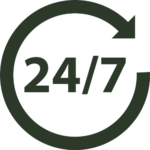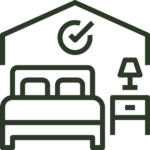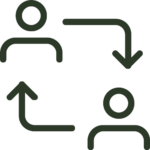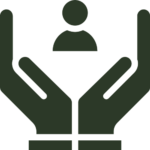We offer the highest quality resources to support your recovery journey, ensuring absolute comfort and maximizing your insurance benefits.






At Sullivan Recovery, we are deeply committed to honoring the unique cultural needs of Native Americans seeking healing from addiction. Our wellbriety program is specifically designed to integrate traditional Native American values and holistic approaches into the recovery journey. Rooted in Indigenous teachings, this program offers a path to sobriety that connects participants to their heritage, spirituality, and community.
Wellbriety combines the concepts of sobriety and wellness, emphasizing a balanced approach to healing. This program goes beyond mere abstinence from substances—it focuses on restoring balance in all areas of life: mental, physical, emotional, and spiritual. We recognize that true healing requires more than just stopping substance use; it involves rediscovering harmony within oneself and one’s community.

A key aspect of our approach to treating Native American individuals is incorporating Red Road to Recovery practices. The Red Road is a sacred path, rooted in Native American spiritual beliefs, emphasizing self-discovery, accountability, and living in harmony with natural laws. At Sullivan Recovery, we use these teachings to guide our treatment process, offering a culturally sensitive and empowering way forward for Native Americans struggling with addiction.

Trustindex verifies that the original source of the review is Google. I’ve never completed a program… Sulivan recovery saved my life. I love the staff, the home cooking, and the welcome they gave me. They never gave up on me when I wanted to give up on myself. Thank you for this wonderful full-filling experience.Trustindex verifies that the original source of the review is Google. This is the best place. The staff are wonderful. Highly recommend.Trustindex verifies that the original source of the review is Google. I came to Sullivan Recovery broken and they helped me get back on my feet, the staff here are like family and treat you as such if you need a place to get sober this is definetley the place.Trustindex verifies that the original source of the review is Google. Very good program the staff are more like family very good with clients in effective and respectful I recommend to all those seeking treatmentTrustindex verifies that the original source of the review is Google. The staff was great and outings were cool. Group facilitators were cool.Trustindex verifies that the original source of the review is Google. A very good facility and program with great staff. They stepped up to the plate to help me and went far and beyond what what necessary to get me the help I needed. They have the experience and dedication to make a difference, working with local doctors and medical facilities to ensure that the clients are getting the medical services they need along with starting out in recovery. They made a big difference in my life. If you're looking for help, they'll be a big benefit to you getting your foot in the door to your recovery.Trustindex verifies that the original source of the review is Google. Fantastic place .. good people , caring people.Trustindex verifies that the original source of the review is Google. I can’t even put into words how grateful I am for you guys! You went over and beyond to help my family! The staff is wonderful and they truly care for every single person that comes in! For that I am gonna keep trudging the road with you! Sullivan Recovery BabY LOVE KIM CAVANAUGHTrustindex verifies that the original source of the review is Google. Nicest people ever very caring and loving there to help you in your road to recovery. Thanks you guys
Here at Sullivan Recovery, our Inpatient Residential Rehab program in Mission Viejo, CA, is thoughtfully crafted to provide the most effective and compassionate care for individuals seeking recovery from drug and alcohol addiction. Here’s what sets us apart:
Alcohol Detox
Safely withdrawing from alcohol involves managing withdrawal symptoms like tremors, anxiety, and insomnia. This often includes medically supervised tapering, medications to ease discomfort, and therapy to address underlying issues.
Due to its potency, fentanyl detox requires medical supervision. Medications like buprenorphine or methadone can help manage cravings and withdrawal symptoms, while therapy addresses psychological dependence.
Opioids Detox
Opioid withdrawal symptoms can be severe, necessitating medically assisted treatment. Buprenorphine and methadone are commonly used to ease cravings and discomfort, alongside therapy for holistic recovery.
Cocaine detox primarily focuses on managing psychological withdrawal symptoms like fatigue, depression, and cravings. Therapy and support groups are essential for developing coping mechanisms and preventing relapse.
Benzodiazepine Detox
Gradual tapering under medical supervision is crucial to avoid severe withdrawal symptoms like seizures and anxiety. Medications may be used to manage discomfort, and therapy helps address psychological dependence.
Meth Detox
Meth withdrawal often involves intense cravings, depression, and fatigue. Behavioral therapy and support groups are key for developing coping skills, while medications may be used to address specific symptoms.
Suboxone Detox
Suboxone detox focuses on tapering off the medication while managing withdrawal symptoms. This is typically done under medical supervision, with therapy to address underlying opioid dependence and develop coping strategies.
Depressants Detox
Gradual tapering under medical supervision is crucial to avoid severe withdrawal symptoms. Medications may be used to manage anxiety and seizures, while therapy helps address psychological dependence.
Sullivan Recovery is located at 24731 Via San Fernando, Mission Viejo, California. From John Wayne Airport (SNA), get on I-405 N.
Next, follow I-405 N to CA-73 N in Mission Viejo. Take exit 79 from I-405 N.
After that, merge onto CA-73 N. Take exit 5 for Oso Pkwy toward Mission Viejo/Laguna Niguel.
Finally, use the left 2 lanes to turn left onto Oso Pkwy. Use the left 2 lanes to turn left onto Marguerite Pkwy. Turn right onto Via San Fernando. Sullivan Recovery will be on the left.
Completing an inpatient treatment program is a significant achievement on the road to recovery. However, the journey doesn't end when you leave the treatment center. Continuing your recovery process through aftercare and ongoing support is crucial to maintaining long-term sobriety and well-being. In this section, we'll explore the next steps after inpatient treatment, which include outpatient programs, continued medical care, holistic therapies, and building a support network.
After completing inpatient treatment, many individuals transition to an outpatient program to continue their recovery journey. Outpatient programs offer the flexibility to live at home while still receiving structured support from the treatment center.
These programs typically include regular counseling sessions, group therapy, and access to additional resources that help reinforce the skills learned during inpatient care. By participating in an outpatient program, you can gradually adjust to everyday life while still benefiting from the support and guidance of rehabilitation facilities.
For those recovering from alcohol abuse, ongoing management from a medical detox is essential. This includes regular check-ups with your healthcare provider to monitor your physical health and ensure that you are maintaining your sobriety.
In some cases, individuals may require additional medical detox if they experience a relapse. Medical detox is a supervised process where the body is safely rid of alcohol or other substances under medical care. It’s a critical step for those who may struggle with severe withdrawal symptoms, and it helps to reset the body for continued recovery.
Medication Assisted Treatment (MAT) is another vital component of ongoing care after inpatient treatment. MAT involves the use of FDA-approved medications, combined with counseling and behavioral therapies, to treat substance use disorders. This approach is particularly effective for those recovering from alcohol abuse or opioid addiction.
MAT can help reduce cravings, manage withdrawal symptoms, and prevent relapse, making it an important part of the overall recovery plan. By working closely with your treatment center, you can determine if MAT is a suitable option for your continued care.
Holistic therapies are an integral part of many inpatient treatment programs, and they can continue to play a significant role in your recovery after leaving the treatment center. Holistic therapies focus on healing the mind, body, and spirit, and include practices such as yoga, meditation, acupuncture, and nutrition counseling. Incorporating these therapies into your daily routine can help reduce stress, improve mental clarity, and promote overall well-being. By continuing to engage in holistic therapies, you can strengthen your recovery and build a balanced, healthy lifestyle.
A strong support network is essential for maintaining sobriety after completing an inpatient program. This network can include family, friends, support groups, and healthcare professionals who understand the challenges of recovery. Participating in support groups, such as Alcoholics Anonymous (AA) or Narcotics Anonymous (NA), can provide ongoing encouragement and accountability. Additionally, regular therapy sessions with a counselor or therapist can help you navigate the emotional and psychological challenges that may arise during your recovery.
Sullivan Recovery is dedicated to providing culturally responsive care that acknowledges and respects the unique needs of Native American individuals. Our integration of the Red Road to Recovery and Wellbriety programs ensures that healing is not only about overcoming addiction but also about rediscovering and embracing one’s identity and culture. We walk this path with you, offering support, guidance, and hope.
At Sullivan Recovery, as an in-network provider we work with most insurance plans, such as:
And More
If you or a loved one are struggling with mental health challenges or substance abuse, reach out to Sullivan Recovery today. Our team of compassionate professionals is here to support your journey towards lasting well-being. Give us a call at 949-836-7180.
We are available around the clock to assist you, every day of the year.
The program duration varies depending on individual needs, typically ranging from 30 to 90 days.
Yes, we accept various insurance plans, and our admissions team can help verify your coverage.
Absolutely. Our medical staff is available 24/7 to ensure your safety and well-being throughout your treatment.
Yes, we encourage family involvement and offer family therapy sessions to help rebuild relationships and provide support.
Our program includes one-on-one counseling, group therapy, behavioral therapy, and holistic therapies to address the physical, emotional, and psychological aspects of addiction.
We are available around the clock to assist you, every day of the year.
© 2024 Sullivan Recovery. All rights reserved.